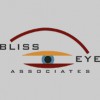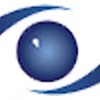
From routine family vision care to complex surgery, Foreman Eye Care is proud to offer a wide range of services for almost any eye care need. Whether your needs are for laser vision correction, treatment for cataracts and glaucoma, surgery of the eyelids, routine eye care or optical services (frames, lenses, contact lenses), you will find we have the experience, dedication and friendly, courteous staff to bring you the very best care possible.
It was a good friend of mine that suggested I consider Lasik Vision Correction when I joked about not being able to find my glasses after I had taken them off. Since I am a horse trainer the conversation led to the times I had been tossed from a green horse out on the trail, lost my glasses, and had to drive home without them. I explored the idea with my optometrist and he highly recommended Dr. Foreman.
At my first appointment I was greeted by Dr. Foreman and his friendly, professional staff. They obviously knew what they were doing while using the most up to date eye care equipment.
It was a good friend of mine that suggested I consider Lasik Vision Correction when I joked about not being able to find my glasses after I had taken them off. Since I am a horse trainer the conversation led to the times I had been tossed from a green horse out on the trail, lost my glasses, and had to drive home without them. I explored the idea with my optometrist and he highly recommended Dr. Foreman.
At my first appointment I was greeted by Dr. Foreman and his friendly, professional staff. They obviously knew what they were doing while using the most up to date eye care equipment.
Services
Daniel S Foreman, M.D. Graduated as Valedictorian from U.C. Santa Barbara with a BA in Bio Chemistry and was elected to Phi Beta Kappa.
He then spent a year at U.C. Berkeley with a 4.0 GPA as a Bio-Physics P.H.D student.
He attained his M.D.
In 1986 at the prestigious Baylor College of Medicine, Houston, TX.
After his internship Dr. Foreman entered the US Navy and graduated #1 in his Flight Surgery Class at the Naval Aerospace Medical Institute in Pensacola, Florida.
Lt. Foreman was stationed at Miramar as a flight surgeon for CVW-15 and then with VF-124.
He then spent a year at U.C. Berkeley with a 4.0 GPA as a Bio-Physics P.H.D student.
He attained his M.D.
In 1986 at the prestigious Baylor College of Medicine, Houston, TX.
After his internship Dr. Foreman entered the US Navy and graduated #1 in his Flight Surgery Class at the Naval Aerospace Medical Institute in Pensacola, Florida.
Lt. Foreman was stationed at Miramar as a flight surgeon for CVW-15 and then with VF-124.
A cataract is a cloudy area in the normally clear lens in the front of the eye.
Cataracts are caused by a chemical change of unknown origin in the eye, and cause blurred or distorted vision.
They cannot be prevented from forming, but early detection through regular eye exams can help maintain the clearest vision possible.
People at risk for developing cataracts are over 55 years old, have had eye injuries or disease, have a family history of cataracts, smoke cigarettes or use certain medications.
Cataracts are caused by a chemical change of unknown origin in the eye, and cause blurred or distorted vision.
They cannot be prevented from forming, but early detection through regular eye exams can help maintain the clearest vision possible.
People at risk for developing cataracts are over 55 years old, have had eye injuries or disease, have a family history of cataracts, smoke cigarettes or use certain medications.
Glaucoma is the leading cause of blindness and visual impairment in the United States.
A simple painless eye exam can detect the disease.
With early detection and treatment, glaucoma can usually be controlled and blindness prevented.
Glaucoma can affect anyone from newborn infants to the elderly.
It has been estimated that up to 3 million Americans have glaucoma.
At least half of those people do not know they have it because glaucoma usually has no symptoms.
To detect glaucoma, Dr. Foreman will test your visual acuity, test the pressure in your eye and dilate your pupils.
A simple painless eye exam can detect the disease.
With early detection and treatment, glaucoma can usually be controlled and blindness prevented.
Glaucoma can affect anyone from newborn infants to the elderly.
It has been estimated that up to 3 million Americans have glaucoma.
At least half of those people do not know they have it because glaucoma usually has no symptoms.
To detect glaucoma, Dr. Foreman will test your visual acuity, test the pressure in your eye and dilate your pupils.
During cataract surgery, a small ultrasonic probe is inserted into the eye which breaks up, or emulsifies, the cloudy lens into tiny pieces and gently sucks, or aspirates, those pieces out of the eye.
Phaco surgery requires a small incision of only 2.8 mm or less.
To make your procedure as painless as possible, anesthesia is a combination of local and/or topical along with IV sedation.
With the recent advance of foldable IOLs, artificial lenses can be implanted through the same small incision that is created in the phaco procedure.
Phaco surgery requires a small incision of only 2.8 mm or less.
To make your procedure as painless as possible, anesthesia is a combination of local and/or topical along with IV sedation.
With the recent advance of foldable IOLs, artificial lenses can be implanted through the same small incision that is created in the phaco procedure.
Because every person's eyes are unique, like fingerprints, it can be difficult to determine the appropriate specifications of the IOL to be implanted during cataract surgery.
The Zeiss IOL Master now provides Dr. Foreman with information on key ocular measurements such as axial length, corneal curvature and anterior chamber depth, making it possible to choose the right IOL for each patient.
Approved by the FDA in 2000, the non-contact IOL Master is the only product in the world that makes these "optical biometry" examinations possible and has proven to be five times more accurate than traditional technologies such as ultrasound.
The Zeiss IOL Master now provides Dr. Foreman with information on key ocular measurements such as axial length, corneal curvature and anterior chamber depth, making it possible to choose the right IOL for each patient.
Approved by the FDA in 2000, the non-contact IOL Master is the only product in the world that makes these "optical biometry" examinations possible and has proven to be five times more accurate than traditional technologies such as ultrasound.
Reviews

Be the first to review Daniel S Foreman, MD.
Write a Review
